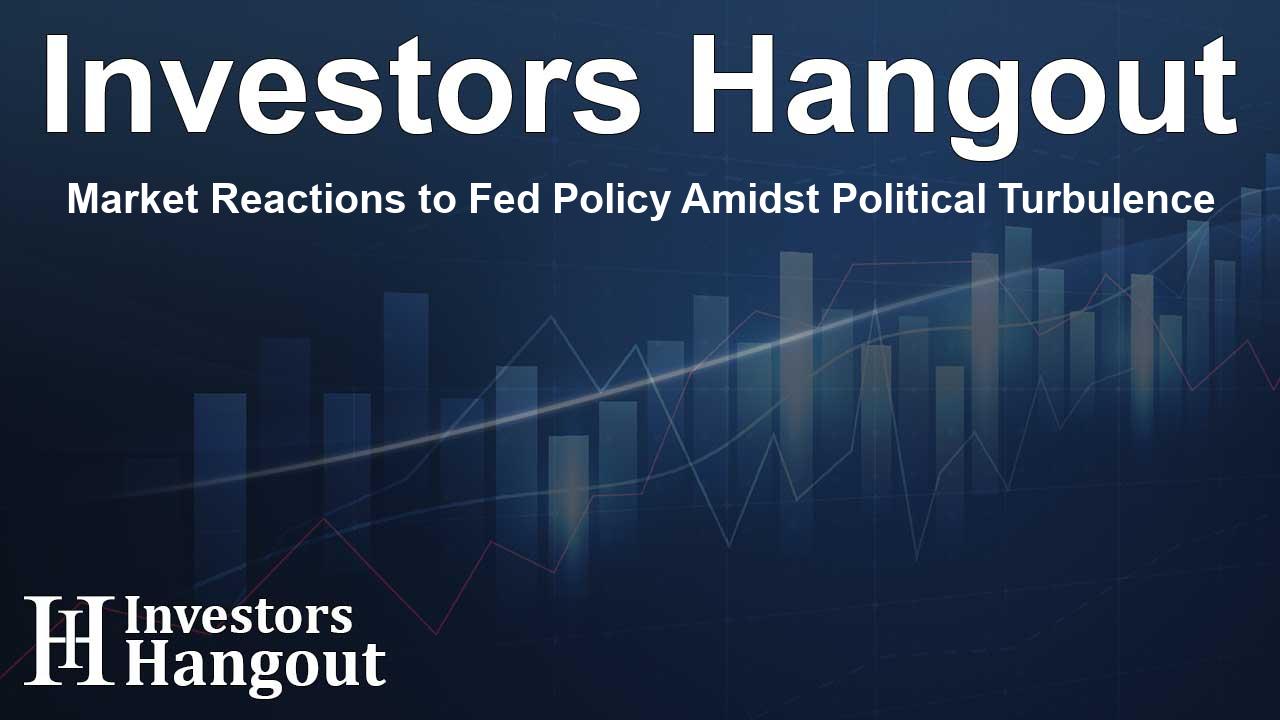Market Reactions to Fed Policy Amidst Political Turbulence

Market Dynamics in Light of Recent Political Developments
The market is exhibiting volatility, especially as political figures exert influence over economic policies. US President Trump's recent remarks about the Federal Reserve have alarmed investors, igniting discussions around future monetary policy and its impact on economic recovery. As we delve deeper into the factors driving these fluctuations, it's essential to understand the nuances that contribute to market movement.
Emphasis on Tariffs and Fed Policies
Currently, the currency landscape is largely influenced by ongoing tariff negotiations alongside the Federal Reserve's outlook. The US dollar initially displayed strength but quickly faced pushback, particularly against the euro as traders processed Trump's rhetoric more critically. The latest US budget negotiations, coupled with Trump's assertive stance on tariffs, have captured the attention of investors.
The upcoming deadline for trade agreements is approaching quickly, prompting various nations to negotiate with the US to avoid potential tariffs. This urgency is reflective of their desire to favorably position themselves in future trade relations. However, the risks associated with such negotiations are substantial. Historical precedent shows that trade agreements may remain incomplete or ineffective, potentially undermining economic growth.
In terms of monetary policy, market participants are left contemplating whether the Federal Open Market Committee (FOMC) will indeed implement rate cuts anytime during the upcoming months. With recent consumer price index (CPI) data surpassing expectations, the likelihood of an immediate rate reduction appears diminished. Yet, the sentiment surrounding the Federal Reserve remains fluid, with each economic report carrying considerable weight in shaping investor expectations.
Reports on producer prices (PPI) also suggest the Fed's decision-making may hinge on upcoming economic indicators. Attention now shifts to forthcoming releases concerning jobless claims and retail sales, anticipated to further influence the FOMC's framework and decision-making as we move forward.
The Political Influence on Monetary Independence
President Trump's ongoing critique of Fed Chair Powell has injected a sense of disarray within monitory circles. His latest suggestions of removing Powell have led to considerable volatility in both the dollar's performance and stock market indices. Trump's acknowledgment of the potential market fallout from such an action illustrates his deep engagement with economic management.
Despite criticisms from the political arena, the need for the Fed's independence remains a focal point among many financial experts. While some Federal Reserve members provide measured responses to Trump's attacks, the lack of vocal support for Powell raises concerns about the future influence of political sentiment on critical economic policy decisions.
Markets, particularly in the bond sector, are responsive to these political undercurrents. The rebound in 30-year Treasury yields above the 5% mark indicates that traders are wary of heightened uncertainty should a shift in governance occur within the Fed. The dynamics around interest rates are precisely what investors are keenly observing as they evaluate the broader implications for economic growth.
Global Economic Outlook and Rate Cut Expectations
As we assess the economic situation, it appears the outlook for further rate cuts from the Bank of England (BoE) remains elevated. Recent economic data releases, despite some showing strength, led to significant investor speculation regarding the possibility of a rate adjustment. Current projections suggest a high probability for a modest cut in the near future, as economic indicators reflect various pressures on the labor market.
This juxtaposition of stronger-than-anticipated reports and the national employment outlook reflects broader uncertainties affecting the global economy. A recent surge in average earnings juxtaposed against employment figures adds complexity to the investment landscape.
The interplay of these factors creates an environment where currency pairs, such as the euro and pound, are experiencing fluctuations. The US dollar's strength is being re-evaluated as it interacts with these variables, bolstered by ongoing political discourse.
Frequently Asked Questions
What is driving the current market volatility?
The market is reacting to ongoing political discussions, particularly President Trump's criticisms of the Fed, which have brought uncertainty to economic policies.
How are tariffs impacting currency values?
Trade negotiations and tariff considerations are significantly affecting currency strength, especially between the US dollar and the euro.
What economic indicators should investors watch?
Key indicators include jobless claims, CPI, and PPI reports, as they heavily influence Fed policy expectations.
What challenges does the Fed face with independence?
The Fed is navigating political pressure, which may challenge its operational independence and credibility in monetary policy.
Are rate cuts expected in the near future?
While some data suggests inflationary pressures, current projections indicate a possibility of rate cuts depending on upcoming economic indicators.
About The Author
Contact Logan Wright privately here. Or send an email with ATTN: Logan Wright as the subject to contact@investorshangout.com.
About Investors Hangout
Investors Hangout is a leading online stock forum for financial discussion and learning, offering a wide range of free tools and resources. It draws in traders of all levels, who exchange market knowledge, investigate trading tactics, and keep an eye on industry developments in real time. Featuring financial articles, stock message boards, quotes, charts, company profiles, and live news updates. Through cooperative learning and a wealth of informational resources, it helps users from novices creating their first portfolios to experts honing their techniques. Join Investors Hangout today: https://investorshangout.com/
The content of this article is based on factual, publicly available information and does not represent legal, financial, or investment advice. Investors Hangout does not offer financial advice, and the author is not a licensed financial advisor. Consult a qualified advisor before making any financial or investment decisions based on this article. This article should not be considered advice to purchase, sell, or hold any securities or other investments. If any of the material provided here is inaccurate, please contact us for corrections.
